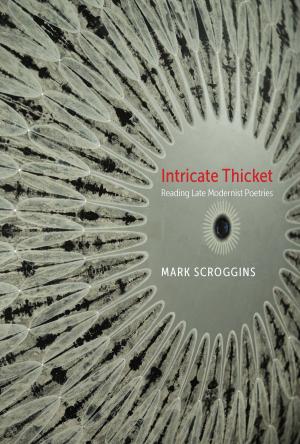The Darkness of the Present
Poetics, Anachronism, and the Anomaly
Fiction & Literature, Literary Theory & Criticism, Poetry History & Criticism| Author: | Steve McCaffery | ISBN: | 9780817386429 |
| Publisher: | University of Alabama Press | Publication: | November 28, 2012 |
| Imprint: | University Alabama Press | Language: | English |
| Author: | Steve McCaffery |
| ISBN: | 9780817386429 |
| Publisher: | University of Alabama Press |
| Publication: | November 28, 2012 |
| Imprint: | University Alabama Press |
| Language: | English |
The Darkness of the Present includes essays that collectivelyinvestigate the roles of anomaly and anachronism as they work to unsettle commonplace notions of the “contemporary” in the field of poetics.
In the eleven essays of The Darkness of the Present, poet and critic Steve McCaffery argues that by approaching the past and the present as unified entities, the contemporary is made historical at the same time as the historical is made contemporary.
McCaffery’s writings work against the urge to classify works by placing them in standard literary periods or disciplinary partitions. Instead, McCaffery offers a variety of insights into unusual and ingenious affiliations between poetic works that may have previously seemed distinctive. He questions the usual associations of originality and precedence. In the process, he repositions many texts within genealogies separate from the ones to which they are traditionally assigned.
The chapters in The Darkness of the Present might seem to present an eclectic façade and can certainly be read independently. They are linked, however, by a common preoccupation reflected in the title of the book: the anomaly and the anachronism and the way their empirical emergence works to unsettle a steady notion of the “contemporary” or “new.”
The Darkness of the Present includes essays that collectivelyinvestigate the roles of anomaly and anachronism as they work to unsettle commonplace notions of the “contemporary” in the field of poetics.
In the eleven essays of The Darkness of the Present, poet and critic Steve McCaffery argues that by approaching the past and the present as unified entities, the contemporary is made historical at the same time as the historical is made contemporary.
McCaffery’s writings work against the urge to classify works by placing them in standard literary periods or disciplinary partitions. Instead, McCaffery offers a variety of insights into unusual and ingenious affiliations between poetic works that may have previously seemed distinctive. He questions the usual associations of originality and precedence. In the process, he repositions many texts within genealogies separate from the ones to which they are traditionally assigned.
The chapters in The Darkness of the Present might seem to present an eclectic façade and can certainly be read independently. They are linked, however, by a common preoccupation reflected in the title of the book: the anomaly and the anachronism and the way their empirical emergence works to unsettle a steady notion of the “contemporary” or “new.”















